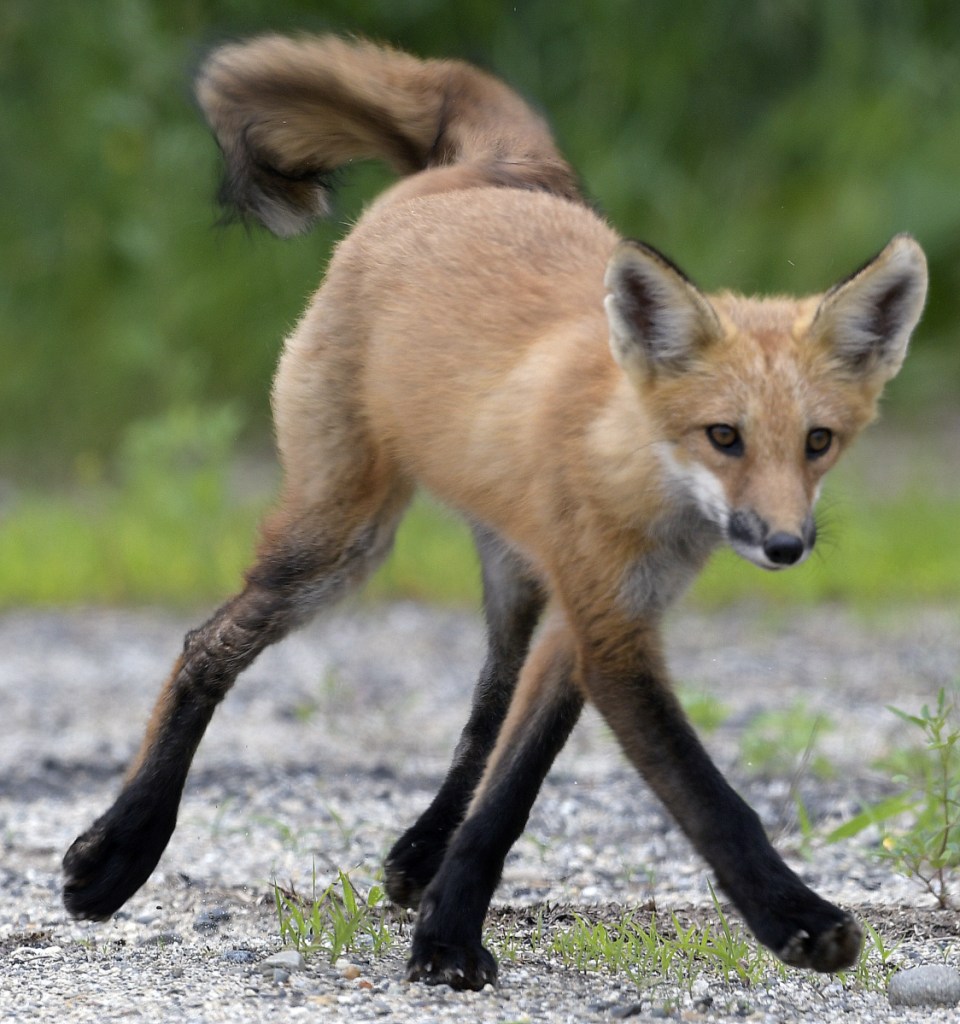AUGUSTA — With reports of four incidents involving a rabid fox in Brunswick earlier this month, and a rabid otter attack in Rockland, central Maine residents are on edge when they see wild animals.
But the officials who deal with those animals are cautioning people against worrying too much when they see a fox or raccoon.
“I don’t know if it’s been because of all the media exposure, but we’ve been getting a lot of calls,” Sgt. Aaron Cross of the Maine Wardens Service said Monday.
“We live where animals live,” Cross said. “The animals are being fairly normal and exhibiting pretty normal animal behavior.”
Urban and suburban areas dot the central Maine landscape, and they are often linked by large swaths of forest and field.
That means that animal control officers attached to municipal police departments are also fielding calls from people concerned that they may cross paths with an infected wild animal that would pose a threat to them, their family or their families’ pets.
“We have no evidence that any of the foxes that have been seen are rabid,” said Paul Frye, animal control officer with the Augusta Police Department.
“I have received no information of any of the animals being aggressive toward other animals or humans. People are not used to seeing animals out during the day and think that because they are out, something must be wrong. All of my inquiries to wildlife officials have told me that this is not accurate,” Frye said.
That’s not to say that interactions with wildlife should be treated casually; Cross said it’s important to be cautious around wild animals.
The Department of Health and Human Services has published a fact sheet on rabies, with information about what rabies is and what steps to take to protect yourself.
Rabies is a viral infection of the nervous system, which includes the brain and the spinal cord. It can be spread through contact with saliva or nerve tissue of an infected mammal particularly on broken skin.
Signs of infection include an animal acting abnormally. That could be either acting aggressively or shyly, or stumbling or appearing lame.
By law, all dogs and cats are required to be vaccinated against rabies.
If you think you have come in contact with a rabid animal, state health officials advise washing the affected area with soap and water for 10 minutes, then contacting your doctor and your local animal control officer.
To know whether a wild animal has rabies, its brain must be tested, so it must be captured and euthanized.
Family pets that are suspected of infection are likely to be quarantined and observed for 10 days to see whether signs of the disease appear.
Frye said dozens of complaints come to the Augusta Police Department every day.
“We continue to try and find this animal to evaluate its health but (we) have been unsuccessful thus far,” he said.
Cross, one of the most common calls the Wardens Service fields is for skunks being sighted during the day.
“It’s hard to explain to the public that it’s common to see them during the day,” he said.
Cross said the Wardens Service doesn’t want to discourage anyone from calling if they have concerns, but at the same time, it doesn’t want Maine residents worrying that all wild animals they see are sick or are carrying a disease.
“They have to be somewhere,” he said, “and they are out doing something.”
Jessica Lowell — 621-5632
Twitter: @JLowellKJ
Send questions/comments to the editors.



Success. Please wait for the page to reload. If the page does not reload within 5 seconds, please refresh the page.
Enter your email and password to access comments.
Hi, to comment on stories you must . This profile is in addition to your subscription and website login.
Already have a commenting profile? .
Invalid username/password.
Please check your email to confirm and complete your registration.
Only subscribers are eligible to post comments. Please subscribe or login first for digital access. Here’s why.
Use the form below to reset your password. When you've submitted your account email, we will send an email with a reset code.